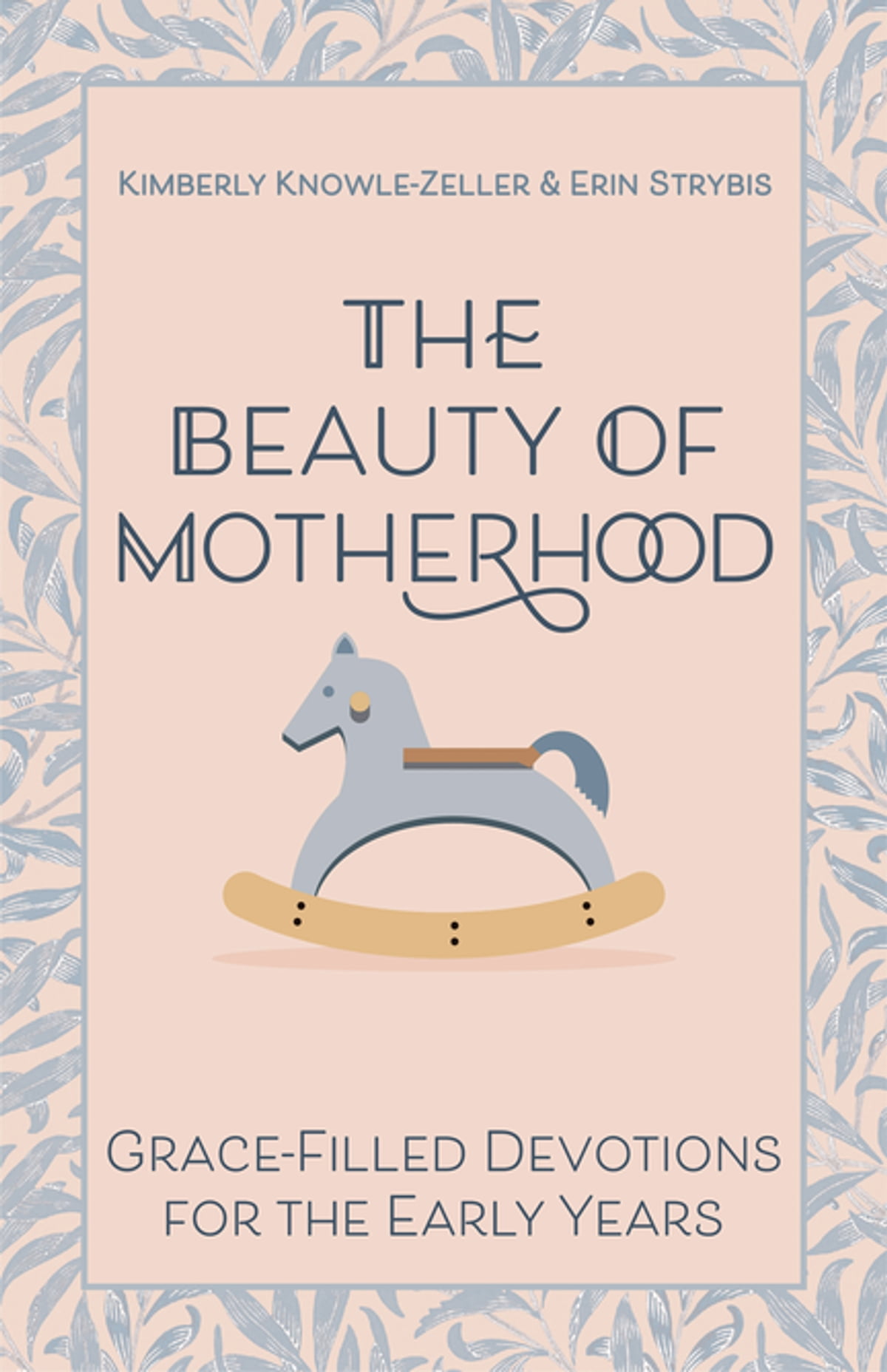I don’t like most Christian books on motherhood. They’re boring. But I face a dilemma in that I am a Christian, and a mother. I have certain spiritual needs that can only be addressed by Christian books on motherhood. So, how do I find the good ones? The ones that will provide solace and prayerful introspection about parenting while not boring me to sleep or lengthening my resentment-inducing ‘to do’ list for my children? With more than 5,000 daily devotionals for mothers currently on the market, it’s a conundrum. The outcome being that I haven’t done a daily devotional since my kids were born. I’ve tried, but my eyes rolled too far back into my head and almost got stuck there.
So, here’s my confession: I wouldn’t have read The Beauty of Motherhood if I had seen it in a bookstore. The pink and purple cover with a rocking horse on it said to me, “this book is for gentle and quiet women, not struggling moms like you.” I read it not for its cover but because I greatly respect the two women who wrote it, Erin Strybis — a former editor at Living Lutheran magazine — and Kimberly Knowle-Zeller — a Lutheran pastor. After reading the entirety of the book, here’s what I wish they had put on the cover — a fist smashed into avocado toast.
 Not only would smashed avocado toast be the perfect symbol of Millennial motherhood, it also is one of the more memorable scenes of the book. In the devotion entitled “Forgiveness at Mealtimes: Managing Emotions and Saying Sorry,” Strybis tells a relatable story of making her son’s morning avocado toast exactly as he likes it, only to have it rejected by toddler Jack as “too spicy.” Strybis smashes her fist into the avocado toast, bits of slimy green flying through the air and landing on both her and her son’s faces.
Not only would smashed avocado toast be the perfect symbol of Millennial motherhood, it also is one of the more memorable scenes of the book. In the devotion entitled “Forgiveness at Mealtimes: Managing Emotions and Saying Sorry,” Strybis tells a relatable story of making her son’s morning avocado toast exactly as he likes it, only to have it rejected by toddler Jack as “too spicy.” Strybis smashes her fist into the avocado toast, bits of slimy green flying through the air and landing on both her and her son’s faces.
She goes on to say, “we all have moments in motherhood when rage rises to the surface: kids who won’t go to bed, incessant whining, the struggle to get out the door in the morning. When we feel anger at our kids, it might surprise us with its intensity.” She ends the devotion with a prayer addressed to the “God of big feelings and little people, God of tiny whims and large frustrations.” Yes! This is motherhood! It is in those green, slimy moments filled with big human emotions that we need the grace of God the most. Put that smashed avocado toast on the cover!
As a Christian young woman, complication and mess was rarely how beauty was sold to me. But as an art minor in college, I learned that beauty is found in balance. In art, shape, color, line and form all have to be in balance. An ugly umber-orange is just as important as a pretty sky-blue; a thin dainty line just as important as a fat chunky one. Both make the painting beautiful.
Likewise, in this book of devotions, Strybis and Knowle-Zeller describe Instagram-worthy scenes of motherhood — the sun’s first light on the family dry-erase calendar, piles of colorful fresh fruit on counters, and the oak leaf canopy over the neighborhood playground. But they also describe where God is for them in the grief, exhaustion, and anger that comes with mothering. In that balance of description is the beauty of motherhood.
In many ways, balance is also what’s attractive about the Lutheran theology of the two women who wrote the devotional. Like Luther, Strybis and Knowle-Zeller describe themselves as mothers who are both sinners and saints, loved as they are by a grace-filled God. Also like Luther, they raise the work of parenthood to that of “apostles, bishops and priests,” naming motherhood as “a sacred calling” and “hard, holy labor.” Within the book is a devotion for the milestone of infant baptism, and they highlight moments of confession about not enjoying play with their children and that their children are often kind one moment and cruel the next.
Where Strybis shines as a writer, Knowle-Zeller comes in to offer pastoral care to new moms who are often isolated. The sleep-deprived loneliness of maternity leave can come as an abrupt surprise to many new moms used to the encouragement of coworkers and friends. It’s clear that in this book Strybis and Knowle-Zeller are hoping to reach into those lonely days and offer a blessing. As Knowle-Zeller says, “When we bless someone we offer tangible words to remind them they are not alone.” This Mother’s Day, if someone you know is in the first years of motherhood, let this book be a blessing to them.

COMMENTS
Leave a Reply












